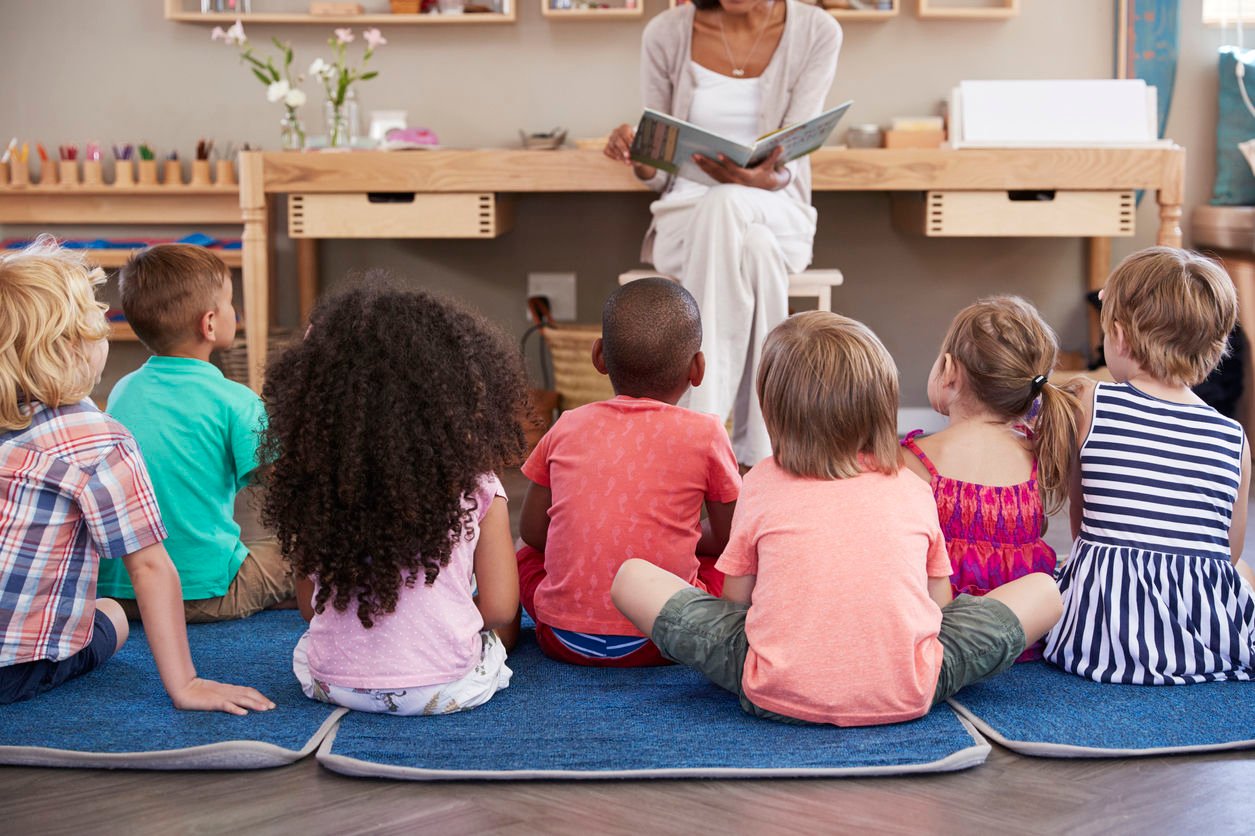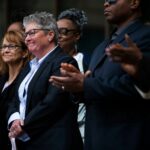LGBTQ references removed from Colorado social studies standards for grades K-3

When Colorado’s revised social studies framework is presented to the state Board of Education on Tuesday, it will not include a proposed revision that would have allowed discussion about LGBTQ people’s historical contributions and issues in lower-grade civics and social studies classes.
The Social Studies Standards Review and Revision Committee has withdrawn its plans to add, in its revision of state standards, references to the queer community in classes below fourth grade after receiving public feedback asserting that such references are inappropriate for young children, according to a slideshow presentation prepared by the agency.
The committee, comprised of social studies teachers and professors from across the state, presented the first draft of revision recommendations to state board of education in November.
Colorado Springs-area school districts battle teacher shortage
The provisional changes were made in accordance with House Bill 19-1192, “Inclusion of American Minorities in Teaching Civil Government,” which states, in part, that social studies and civics classes should include “the history, culture and social contributions of American Indians, Latinos, African Americans and Asian Americans, and the lesbian, gay, bisexual and transgender individuals within these minority groups.”
When the revisions were made available for public feedback, numerous concerns were raised about the appropriateness of referencing LGBTQ people in lower grades.
During the “public feedback window” from Nov. 12 to Feb. 1, the state board received 17,344 items of feedback, primarily in the form of emails and letters. Of those, 4,499 indicated “disagreement with specific revision recommendations,” according to the presentation.
The slideshow notes that half of the negative feedback came from six respondents. One respondent provided more than 1,000 comments in disagreement.
Of the 11,609 responses of agreement, about half came from eight respondents, the committee noted.
Speakers plead with District 20 board to meet their responsibilities to students with disabilities
The presentation summed up the themes of the negative feedback, which included concern that the proposed standards emphasized “negative” elements of American history and suggestions that the revisions “provide a more balanced view.”
Steve Durham, a state board of education member representing Colorado’s 5th Congressional District, said many parents were concerned about the appropriateness of discussing LGBTQ issues in a lower-elementary classroom setting.
“What we’re trying to do is direct those discussions to the home where they belong and put parents in charge of their children’s education, particularly at these young ages,” Durham said. “Most parents are uncomfortable, I think, with those discussions taking place in a school setting at those ages.”
For instance, Durham said, one of the recommendations suggested discussions of LGBTQ issues in kindergarten.
“From my own perspective, I just could really not imagine what a conversation among children that age would look like, and I think most parents would agree with that,” he said.
Alissa Smith, of Inside Out Youth Services, said that such discussions are appropriate among the lower grades because they revolve around history and civics, not sex.
“What we’re seeing here is the thinking that LGBTQ identities are inherently sexual, which they are not,” Smith said. “So the idea that parents are uncomfortable with just acknowledging that queer people exist in the classroom is just an erasure of history.”
Smith said the revised standards are similar to a recently-passed law in Florida that bans the teaching of LGBTQ issues in lower elementary grades – commonly known among opponents as the “Don’t Say Gay” bill.
An acknowledgement of queer identities, Smith said, would allow grade-schoolers to realize that “these identities are perfectly fine and as acceptable as any other identity. I don’t know why you wouldn’t want that, if our goal is to make students safer.”
Durham said decisions about whether to discuss LGBTQ issues should be made at the district school board level instead of being dictated by the state.
District 11 Board of Education votes to dissolve equity department
“Colorado is a local-control state,” he said. “Local school boards should be weighing in on these issues and setting realistic policies in their own districts.”
Leaving the decision to school boards would create statewide inconsistencies in how history and civics are taught, Smith said.
“In theory, it sounds great,” they said. “But it means some kids are going to have comprehensive education that includes queer people from history, and some kids will not, which reinforces inequities that are already in place in our school system.”
Durham said discussions about LGBTQ issues should primarily take place between parents and their children, and that an increasing number of parents have indicated a willingness to have these conversations.
“Parents, as we know, have become more involved of late,” Durham said. “And that’s a good thing.”
The final recommendations for the social studies standards will be presented to the state board in May. The board is expected to approve the standards over the summer.





